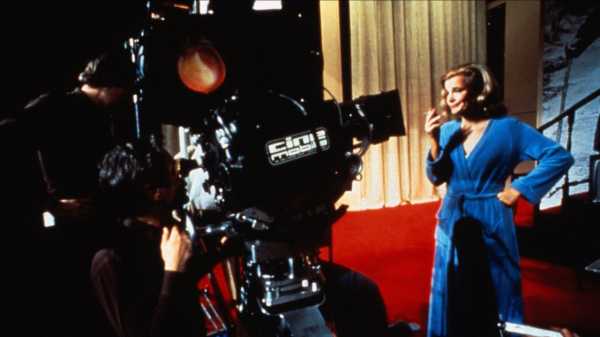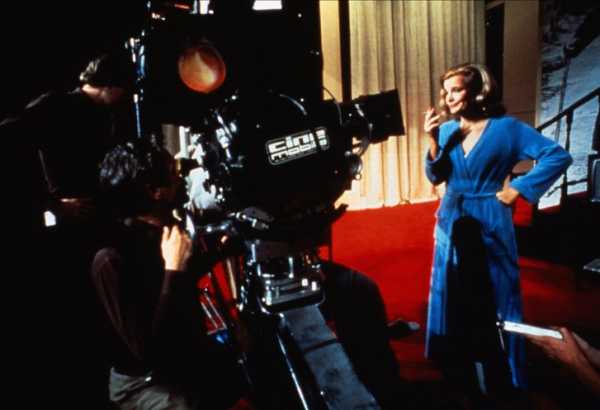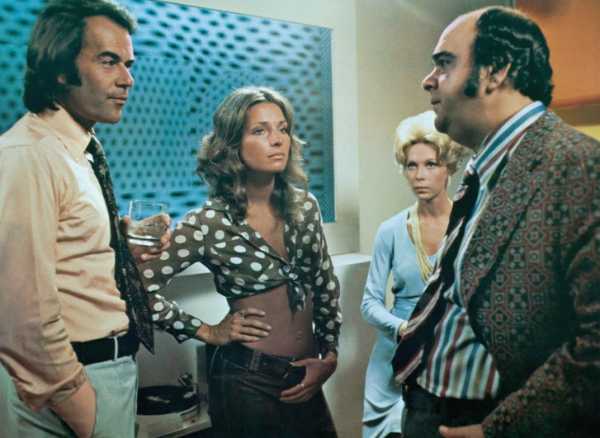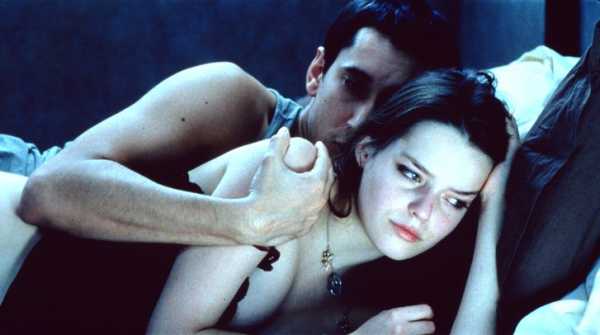
Each week, Richard Brody picks a classic film, a modern film, an independent film, a foreign film, and a documentary for online viewing.
“Opening Night”

Photograph by AF archive / Alamy
There aren’t any really good screen adaptations of Philip Roth’s books, but there are plenty of noteworthy cinematic reflections of his artistic concerns. Roth wrote often and insightfully about actors and actresses, as in the novels “Zuckerman Unbound,” “Sabbath’s Theater,” and “The Humbling,” and one filmmaker who shares his devotion to the subject—and who also films conflicts between men and women with self-deprecating passion—is John Cassavetes, whose 1977 drama “Opening Night” is one of the best ever made about the emotional demands of performance. Gena Rowlands stars as an actress, named Myrtle Gordon, who is heading up to New Haven for a tryout of a new play—written by an older playwright (played by the Hollywood veteran Joan Blondell, a star of Busby Berkeley musicals from the early thirties) whose play depicts a woman facing her own advancing age. In the course of the action, Myrtle confronts the play itself and her own ability, or willingness, to perform it as written, even as her own romantic life is in a state of distress. (She’s married to her producer, played by Paul Stewart, and is in a state of artistic and romantic tension with her director, played by Ben Gazzara, and her co-star, played by Cassavetes, Rowland’s real-life husband.) In “Zuckerman Unbound,” Roth refers to Kierkegaard’s “The Crisis and a Crisis in the Life of an Actress,” an essay from 1847, in which the philosopher discusses differences in the art and the psychology of younger and older actresses. In “Opening Night,” Cassavetes updates the subject for modern times and puts it into action in a final scene, set onstage, that’s one of the cinema’s most ambitious and exhilarating reflections on the art of performance.
Stream “Opening Night” on the Criterion Channel at FilmStruck, Amazon, and Kanopy.
“Such Good Friends”

Photograph from Everett
The sardonic 1971 comedy “Such Good Friends,” directed by Otto Preminger, with a script by Elaine May based on a novel by Lois Gould, captures the sexual revolution in full swing while looking bitterly at the deceptions and the vanities in which its fellow-travellers hide out. Dyan Cannon stars as Julie Messinger, a young Manhattan stay-at-home mother who could be related to the Brenda Patimkin of Roth’s novella “Goodbye, Columbus”—smart, energetic, capable, and caught in a social role that her imagination keeps trying to break free of. Her husband, Richard (Laurence Luckinbill), Life magazine’s art director and a successful children’s-book author, has a minor operation and goes into a coma; while he’s hospitalized, Julie learns that he’s been having affairs with other women. The social circle of the marginal glitterati offers fast talk and trivial amusements in lieu of relationships; meanwhile, Julie’s fantasies, ranging from the erotic to the embittered, come to the fore and break through the fine fabric of her daily life. Preminger’s uproariously satirical portraiture features James Coco as a flashy doctor, Ken Howard as a hip photographer, and a pair of classic-era luminaries, actress Nina Foch as Julie’s self-absorbed mother and Burgess Meredith as a highbrow literary author whose cloak of dignity Julie sees right through.
Stream “Such Good Friends” on Amazon, Google Play, and other services.
“Listen Up Philip”

Photograph by Tribeca Film / Everett
On an earlier list of movies about writers, I mentioned Alex Ross Perry’s third feature, “Listen Up Philip,” from 2014, but I’d be remiss in not recommending it here again, because it may be the closest thing to a Philip Roth movie that exists—even including adaptations of Roth’s own screenplays. The very credits, borrowing the typeface that adorned Roth’s novels of the late sixties and early seventies, suggest the connection as clearly as does the name of the protagonist, a novelist named Philip Lewis Friedman (played by Jason Schwartzman, the most exquisitely literary actor of his generation). This Philip, who’s thirty-ish, suffers humiliations at the hands of the literary world, his publisher, and his rival (Keith Poulson), and as his ego takes bruises, he dishes out emotional bruises to his girlfriend, Ashley Kane (Elisabeth Moss), a photographer. In a series of scenes bouncing off Roth’s novel “The Ghost Writer,” Philip accepts an invitation to the country house of his literary idol and role model, an elder writer named Ike Zimmerman (Jonathan Pryce). In a touch borrowed from “The Human Stain,” Philip confronts the punctilious labyrinth of academic life; and in a touch that’s entirely Perry’s own, the movie shifts to the perspective of Ashley, who is facing life without Philip. Its fusion of art and life, and its vision of the pain on which creation is built, refract Rothian themes into the heart of literary Brooklyn.
Stream “Listen Up Philip” on Amazon, Vudu, and other services.
“Sex Is Comedy”

Photograph by IFC Films / Everett
The very title of Catherine Breillat’s 2002 drama “Sex Is Comedy” rings true to Roth’s body of work (and his work with the body), as does its subject, the creation of works of art and its inescapable connection to the creators’ lives. In the case of Breillat’s film, the work of art in question is a movie, one that’s being directed by a woman named Jeanne (Anne Parillaud) and that stars a younger woman (Roxane Mesquida) and a young man (Grégoire Colin). The movie that Jeanne is making has much to do with sex, and features a major sex scene for which the actors have to spend much time together in bed, naked. The setup may seem as funny as the title suggests, and the movie does offer some moments of Rabelaisian humor, but there’s nothing funny about the emotional struggles that the actors face, in dealing with each other, with Jeanne, and with themselves—or with the real agony that goes into the creation of a persuasive fiction. Breillat’s simultaneous depiction of both sides of the artistic mirror only amplifies the movie’s connection with Roth’s work.
Stream “Sex Is Comedy” on Amazon and FilmStruck.
“C.S.A.: The Confederate States of America”

Photograph by IFC Films / Everett
Roth is the author of “The Plot Against America,” one of the great literary works of counterfactual history, and the most notable recent movie in the same genre is “C.S.A.: The Confederate States of America,” from 2006, written and directed by Kevin Willmott. It’s a mockumentary about the state of the union in the present day if that union had been forged through the triumph of the Confederacy in the Civil War. Unsurprisingly, the Confederate States continue to enslave black people and has extended the practice to the North, too. Willmott does some serious world-building to consider the foreign relations that the C.S.A. would have to maintain along with their racist ideology (such as alliance with Nazi Germany during the Second World War and the construction of a Berlin-style wall along the length of the Canadian border to prevent slaves’ escape). Willmott sharply recognizes such a regime’s negative intersectionality—the C.S.A. never grants women the right to vote; he invents a counter-history for Abraham Lincoln, he shows what the director D. W. Griffith might have filmed in the nineteen-teens in lieu of the “lost cause” drama “The Birth of a Nation,” and he borrows archival news footage of John F. Kennedy and Ronald Reagan to extend the abolitionist struggle to modern times. In a terrifyingly prescient touch, he reaches back historically to depict the collusion of the Confederacy with foreign countries, enemies of the United States, in order to achieve the victory of their racist regime.
Stream “C.S.A.: The Confederate States of America” on Amazon and Microsoft.
Sourse: newyorker.com






